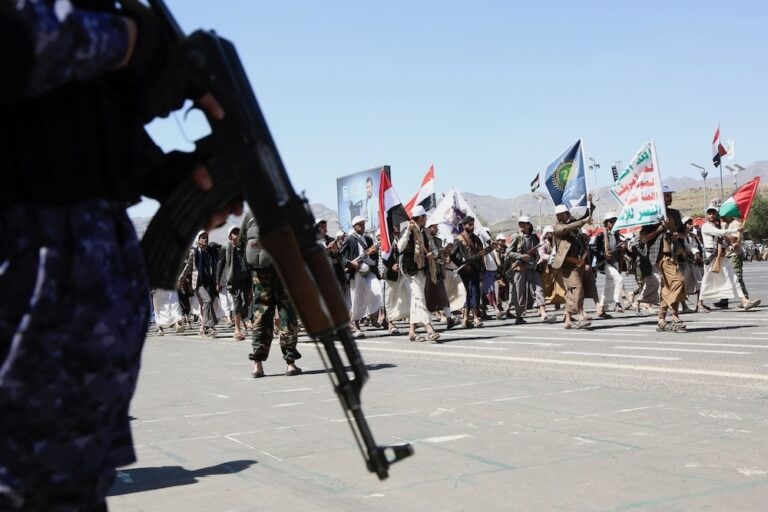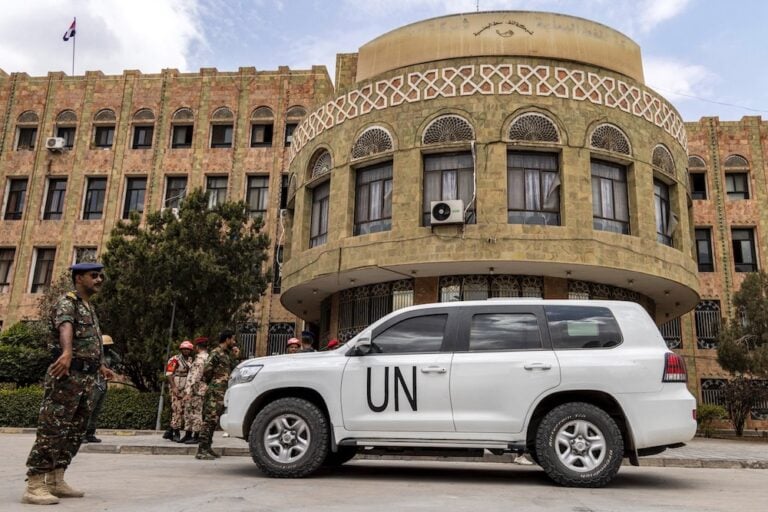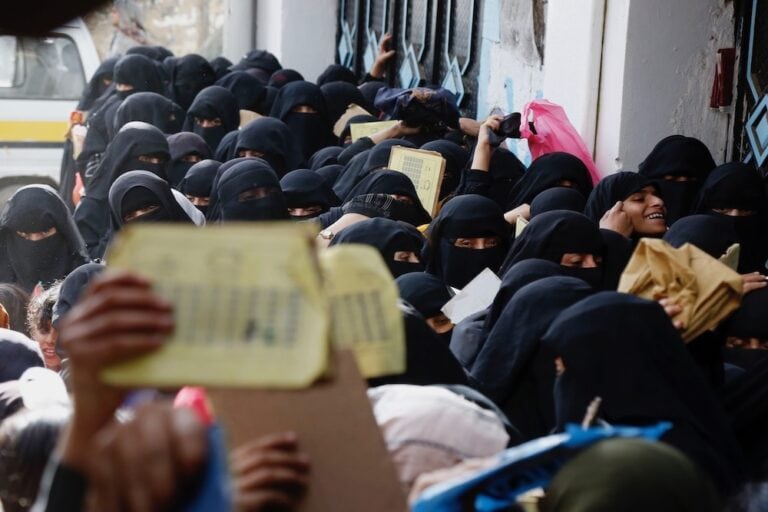The implications for journalists covering demonstrations are unclear, and their ability to move around freely and safely cannot be guaranteed.
(WAN-IFRA/IFEX) – The Yemeni parliament voted on 23 March to implement a 30-day state of emergency, a move that grants significant extra powers to President ‘Ali ‘Abdullah Saleh’s regime to continue its already brutal crackdown against anti-government protesters.
The implications for journalists covering the demonstrations are unclear, and their ability to move around freely and safely cannot be guaranteed. In a letter to the President, free expression organisations condemned the attacks on journalists and expressed their serious concern for the state of press freedom and free expression:
1 April 2011
His Excellency General ‘Ali ‘Abdullah Saleh
President
Office of the President
Sana’a
Republic of Yemen
Fax: + 967 127 4147
We, the undersigned free expression organisations, condemn the serious violations of human rights and the targeting of journalists reporting on events taking place at this critical moment in Yemen.
The death of Jamal al-Sharaabi, a photojournalist for the independent weekly “Al-Masdar” shot on 18 March while covering the violent crackdown on Change (Taghyir) Square, is the latest tragedy in what appears to be the deliberate targeting of journalists covering pro-democracy demonstrations. Al-Sharaabi was among 52 individuals killed by security forces who opened fire on a protest against President Ali Abdullah Saleh.
The Yemeni Journalists’ Syndicate (YJS) has documented more than 50 separate attacks on journalists since political unrest began in January. The attacks include abductions, assaults, confiscation of equipment, and threats of violence against journalists and their families.
Furthermore, International Freedom of Expression Exchange (IFEX) members have documented a series of attacks against local and foreign media. On 17 March, pro-government thugs seized an Al-Jazeera crew’s camera as the station’s correspondent, Hamdi Al-Bokari, was covering violence against demonstrators in the province of Taiz. That same day, journalist, writer and activist Bushra Al-Maqtari was injured when security agents tried to disperse a sit-in in Freedom Square in the city of Taiz. Mareb Press reporter Mohammed Al-Hozayfi was also injured when anti-riot police threw stones and used teargas to disperse the protesters.
The authorities have also obstructed the distribution of certain newspapers. Copies of the 17 and 18 March issues of “Akhbar Al-Yom” were seized at Sana’a airport to prevent them being sent to Aden, Al-Daleh, Lahej and Abyan. On 15 March, the authorities prevented distribution of the latest issue of the Aden-based newspaper “Al-Oumana” in the capital. The issue contained coverage of student demonstrations.
On 24 March, authorities ordered Al-Jazeera’s offices to close and stripped its journalists of accreditation.
We, the undersigned organisations, call on the Yemeni authorities to immediately halt all attacks against the media and to ensure the protection and safety of journalists covering events in the country.
Furthermore, we call on President Saleh and his security forces to respect the right to freedom of expression and to allow journalists to go about their work freely, without fear of harassment or physical attack. With a volatile and increasingly tense situation unfolding, we demand that the authorities exercise maximum restraint and adhere to their obligations as laid out in the International Covenant on Civil and Political Rights to which they are signatories and in the Universal Declaration of Human Rights, to which their Constitution commits to respect.
Signed,
International Media Support (IMS)


